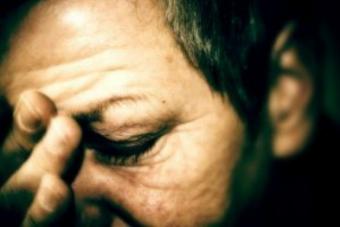
If you have ever felt a sense of being helpless or in danger, while your heart is pounding wildly or you are having feelings of lightheadedness and shortness of breath, you may be experiencing the symptoms of a mild anxiety attack.
What is an Anxiety Attack?
An anxiety attack, also called a panic attack, often occurs suddenly and without warning. Sometimes you may know the cause, or trigger, such as thinking about an upcoming presentation or driving through a tunnel. At other times there seems to be no apparent reason for the sudden onset of the anxiety attack.
The symptoms that you feel during an anxiety attack can occur even if you are not in the situation that is the cause of your anxiety. For example, if you work in a job that is stressful you may experience symptoms of anxiety when you are not at work. You might have trouble sleeping at night, notice that your hands are trembling while you are watching television or experience blurry vision on your day off.
Feelings of anxiety are the body's normal reaction to stress. The feelings are the body's way of helping to cope with a stressful situation or event. However, when the feelings of anxiety become irrational or excessive the result is often an anxiety attack.
Symptoms of a Mild Anxiety Attack
When you experience an anxiety attack, the feelings of anxiousness and panic affect you both mentally and physically. Generally, the symptoms experienced during a mild anxiety attack are the same as those experienced during a more severe anxiety attack, only to a lesser degree.
The symptoms of a mild anxiety or panic attack may begin to subside in ten minutes or less. If the anxiety attack is caused by thoughts you are having of something bad, or something you perceive as bad, the anxiety attack generally lasts slightly longer but should subside in ten to twenty minutes.
Not everyone experiences the same symptoms, or group of symptoms, when an anxiety attack occurs. During an anxiety attack some people may only experience one or two symptoms, while others experience a greater number.
Physical Symptoms
One of the first signs of an anxiety attack people generally feel is a quickening of their heartbeat.
Additional symptoms of an anxiety attack might include:
- Slight chest pain
- Tightness in the chest
- Heart palpitations
- A pounding sensation in your ears as the blood flows faster through your body
- An increase in blood pressure
- A choking sensation
- Lightheadedness
- Dizziness
- Unsteadiness
- Nausea
- Rapid breathing
- Shortness of breath
- Excessive sweating
- Clammy palms
- Trembling hands
- Dry mouth
- Headache
- Tingling
- Diarrhea
- Shakes
- An upset or nervous stomach
- Indigestion
- Pale skin
Emotional and Mental Symptoms
One of the most common feelings associated with an anxiety attack is an overall sense of fear, terror or impending doom that occurs for no apparent reason.Other emotional and mental symptoms of an anxiety attack might include:
- Feelings of suffocation and not being able to breathe
- Feeling as if you may lose your grip on reality
- A sense of dread
- Apprehension
- Losing sense of reality
- Dreamy
- Losing sense of self
- Lack of uncertainty
- Tension
- Difficulty focusing or concentrating on things
- Jumpy
- Expecting the worst to happen
- Restlessness
- Irritability
What to Do During a Mild Anxiety Attack
There are things that you can do while you are experiencing a mild attack of anxiety to help yourself get through it.
- Remind yourself that it will only last about ten minutes and it will be over soon.
- Consciously breath in a steady slow pattern.
- Distract yourself by singing, listening to music or watching television.
- If you can, go to a place that you find comfortable and happy.
- Tell yourself reassuring things.
- If you are with a trusted person let him or her know what is happening and let the person give you words of reassurance that everything is going to be fine.
When you are aware of the symptoms of a mild anxiety attack, you know what to expect if you, or someone with you, experiences one.







